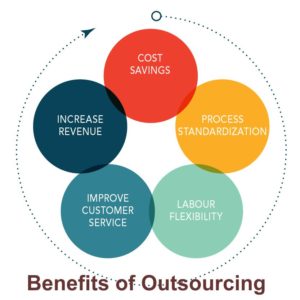 Medical coding is the transformation of healthcare diagnosis, procedures, medical services, and equipment into universal medical alphanumeric codes.
Medical coding is the transformation of healthcare diagnosis, procedures, medical services, and equipment into universal medical alphanumeric codes.
The diagnosis and procedure codes are taken from medical record documentation, such as transcription of physician’s notes, laboratory and radiologic results, etc.
But why we do need medical coding? Shouldn’t it be enough to list the symptoms, diagnoses, and procedures, send them to an insurance company, and wait to hear which services will be reimbursed?
The Importance of Medical Coding:
To answer that, we have to look at the massive amount of data that every patient visit entails. If you go into the doctor with a sore throat and present the doctor with symptoms like a fever, sore throat, and enlarged lymph nodes, these will be recorded, along with the procedures the doctor performs and the medicine the doctor prescribes.
In a straightforward case like this, the doctor will only officially report his diagnosis, but that still means the portion of that report that will be coded contains a diagnosis, a procedure, and a prescription.
Take a step back, and this is suddenly a lot of very specific information. And that’s just for a relatively simple doctor’s visit. What happens when a patient comes into the doctor with a complicated injury or sickness, like an ocular impairment related to their Type-2 diabetes? As injuries, conditions, and illnesses get more complex, the amount of data that needs to be conveyed to insurance companies increases significantly.
According to the Centers for Disease Control (CDC), there were over 1.4 billion patient visits in the past year. That’s a stat that includes visits to physician offices, hospital outpatient facilities, and emergency rooms. If there were just five pieces of coded information per visit, which is an almost unrealistically low estimate, that’d be 6 billion individual pieces of information that needs to be transferred every year. In a system loaded with data, medical coding allows for the efficient transfer of huge amounts of information.
Coding also allows for uniform documentation between medical facilities. The code for streptococcal sore throat is the same in Arkansas as it is in Hawaii. Having uniform data allows for efficient research and analysis, which government and health agencies use to track health trends much more efficiently. If the CDC, for example, wants to analyze the prevalence of viral pneumonia, they can search for the number of recent pneumonia diagnosis by looking for the ICD-10-CM code.
Finally, coding allows administrations to look at the prevalence and effectiveness of treatment in their facility. This is especially important to large medical facilities like hospitals. Like government agencies tracking, say, the incidence of a certain disease, medical facilities can track the efficiency of their practice by analyzing.
 The Benefits of Outsourcing:
The Benefits of Outsourcing:
However, medical coding is not a simple task that anyone can do without any professional knowledge and training.
Therefore, medical coders require specialized certification such as certified professional coder (CPC), certified outpatient coder (COC), certified risk adjustment coder (CRC) and certified inpatient coder (CIC). And there are three sets of code they will use on a daily basis that they need to understand clearly.
ICD
The first of these is the International Classification of Diseases or ICD codes. These are diagnostic codes that create a uniform vocabulary for describing the causes of injury, illness, and death. This code set was established by the World Health Organization (WHO) in the late 1940s. It’s been updated several times in the 60-plus years since it’s inception. The number following “ICD” represents which revision of the code is in use.
CPT
Current Procedure Terminology, or CPT, codes, are used to document the majority of the medical procedures performed in a physician’s office. This code set is published and maintained by the American Medical Association (AMA). These codes are copyrighted by the AMA and are updated annually.
HCPCS
Healthcare Common Procedure Coding System (HCPCS), commonly pronounced as “hick picks,” is a set of codes based on CPT codes. Developed by the CMS (the same organization that developed CPT), and maintained by the AMA, HCPCS codes primarily correspond to services, procedures, and equipment not covered by CPT codes. This includes durable medical equipment, prosthetics, ambulance rides, and certain drugs and medicines.
 As mentioned before, medical coding is not simple work which thus can have a negative impact on practice when there is a limited budget relegated to training your own medical coders.
As mentioned before, medical coding is not simple work which thus can have a negative impact on practice when there is a limited budget relegated to training your own medical coders.
Hence, outsourcing medical coding should be taken into consideration, as it can decrease the costs of a practice enormously. Some of the many benefits included with this reduction in costs are as follows:
- 100% AHIMA and/or AAPC Certified staff and HIM leadership
- HIPAA compliant
- Quality-driven coding based on the 95% industry standard benchmark or higher
- Robust initial quality assurance process followed by monthly coder audits
- Production-forward process with reportable data
- Maximized compliance with state and federal guidelines, minimized denial management time
- Reduced training costs
- Dedicated management of the outsourced coding team; complimenting your existing resources rather than adding to your administrative oversight
- Minimized overhead costs associated with additional IT and/or facility resources
- Access to experienced coders knowledgeable in major specialty services and the EHR systems
- Customized solutions that are specific to your changing needs
Reference:
http://www.hrgpros.com/blog-feed/2017/what-are-the-benefits-of-outsourcing-my-coding-needs
https://www.aapc.com/medical-coding/medical-coding.aspx
https://www.medicalbillingandcoding.org/learn-more-about-coding/
https://www.learnhowtobecome.org/medical-coder/
https://www.aapc.com/medical-coding/what-does-a-medical-coder-do.aspx